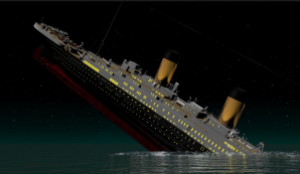 The days of simply having ideas moving through a pipeline and coming out the other end as finished product and services seems part of our great past.
The days of simply having ideas moving through a pipeline and coming out the other end as finished product and services seems part of our great past.
I believe Innovation is becoming overwhelmed by all the changes we are applying into innovation activity and its management.
I would say the IM system is under even greater strain from the shifts coming from the multiple applications of technology, new approaches to design and modelling as well as all the necessary engagement and touchpoints.
Yet we are still expecting this deluge of change occurring to happily move our innovations through that past established, often manual processes, we have presently in place. I think not. We are deluding ourselves, that all is well.
There are such changes occurring.
Continue reading “Sinking the unthinkable”
